At the Quivira refuge, the Avocets were busy wading and feeding close to the shoreline. I could not resist capturing more images of these graceful birds. In the image below, I liked how the bird was reflected in the water.
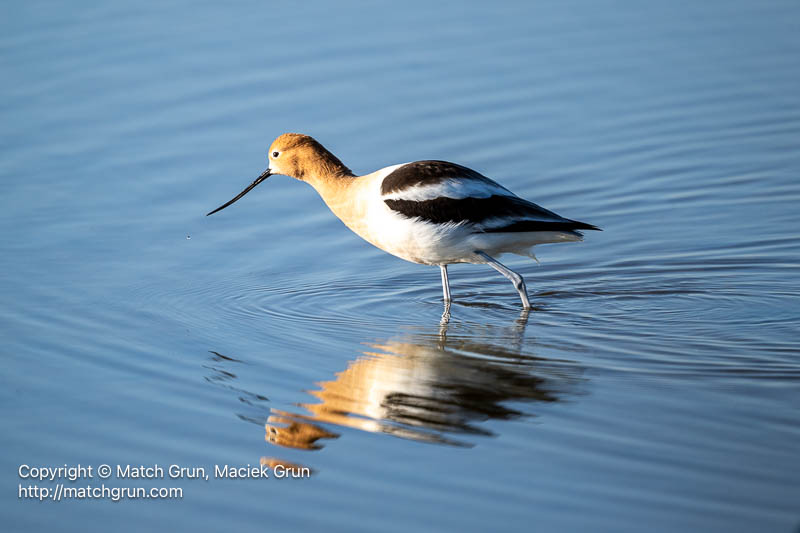
Here is another image of a pair of Avocets foraging close to the edge of the shore.
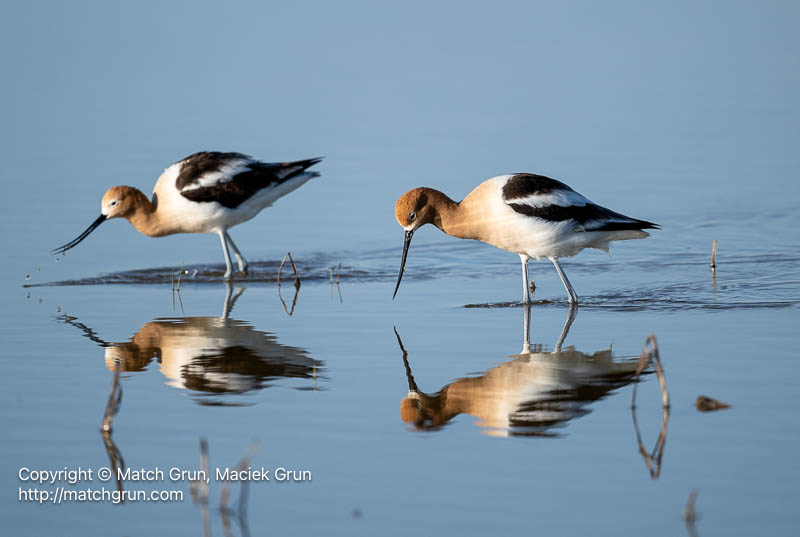
The closest bird moved ahead of the rear bird, dipping its bill into the water. I like the almost perfect reflection of this Avocet’s head in the water.
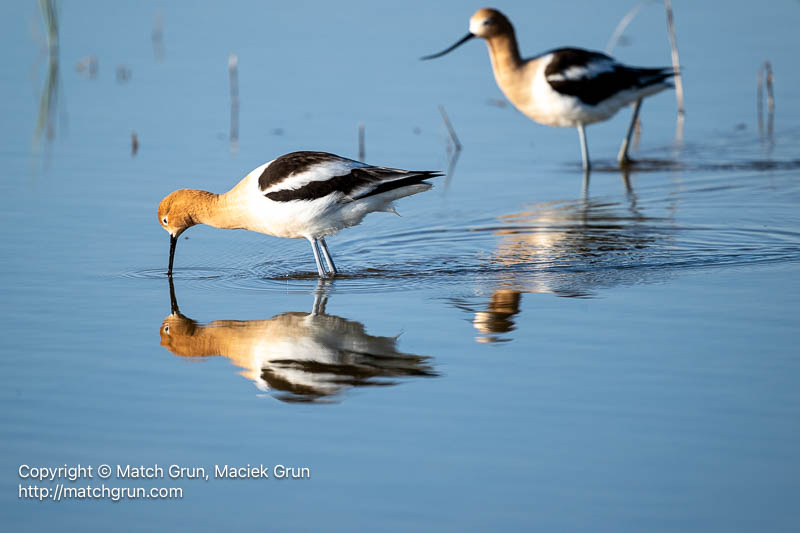
There were several other birds that flew by during our visit to Quivira, including some Terns. I managed to capture this image of a Forster’s Tern as it banked in-flight.
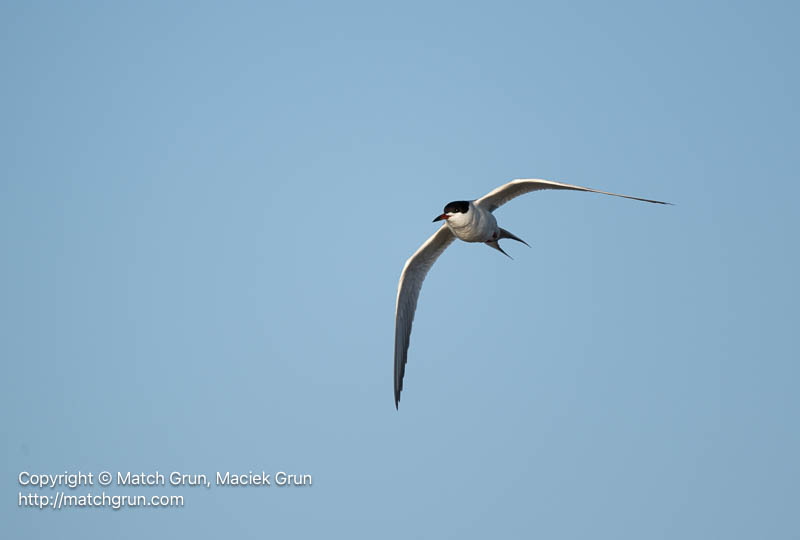
We were lucky to see an American Bittern that had landed in the marshes across the road from the pond. These birds can be very elusive, as they maintain a stationary position among the reeds of a marsh.
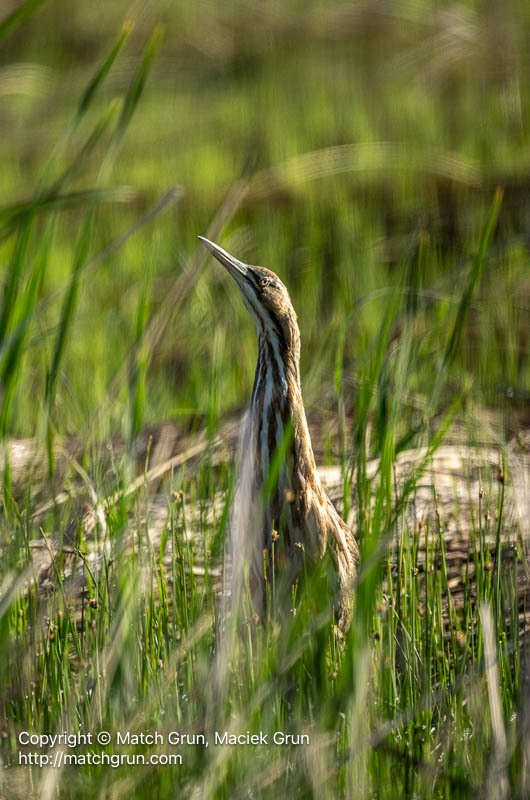
After a break for lunch, we headed out of Quivira passing through the town of Ellinwood. We found a small flock of several Black-Bellied Whistling Ducks in a park close to town center.
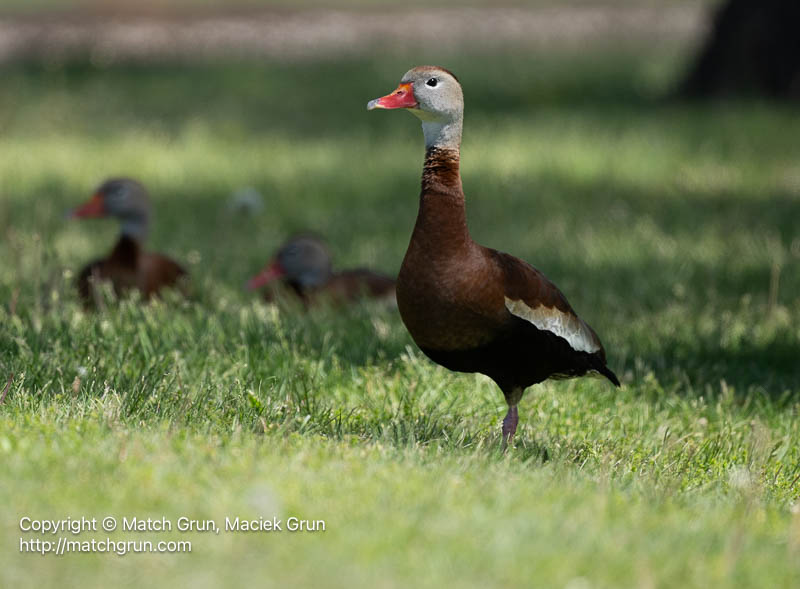
That evening, after dinner, we headed back to Cheyenne Bottoms to view the sunset across the ponds. All the while, the marshes were full of birds making a cacophony of sounds before they set out for another round of migration.
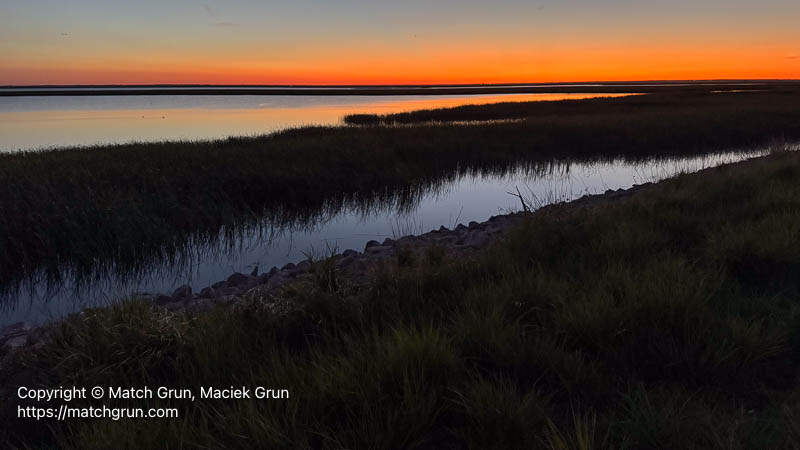
The following morning, we continued our birding adventure by visiting Cheyenne Bottoms just after sunrise. In the marshes beside the road, we found several Short-Billed Dowitchers foraging in the water. These birds have exceptionally long bills, compared to their head size! When feeding, they dip their bills into the mud to feed on bugs, with an action that looks like sewing machines!
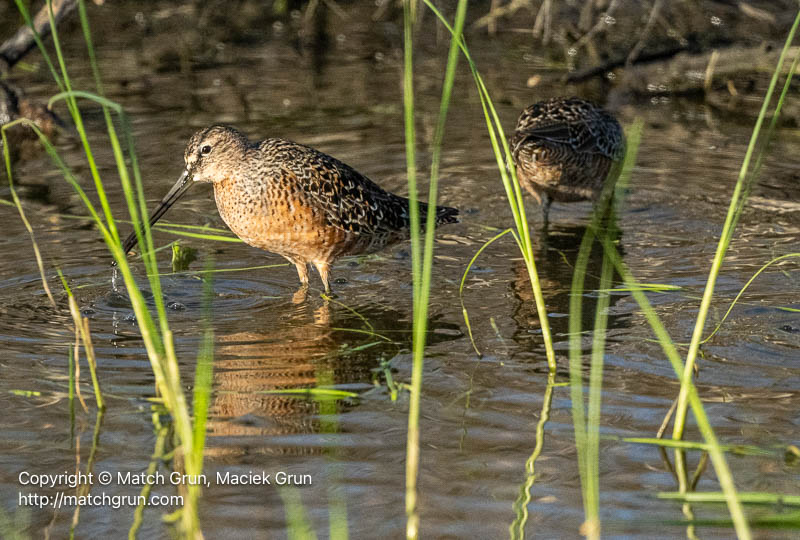
Later that same morning, we drove through some of the surrounding grassland area of the refuge. Here we found an Upland Plover that was perched on a fence post.
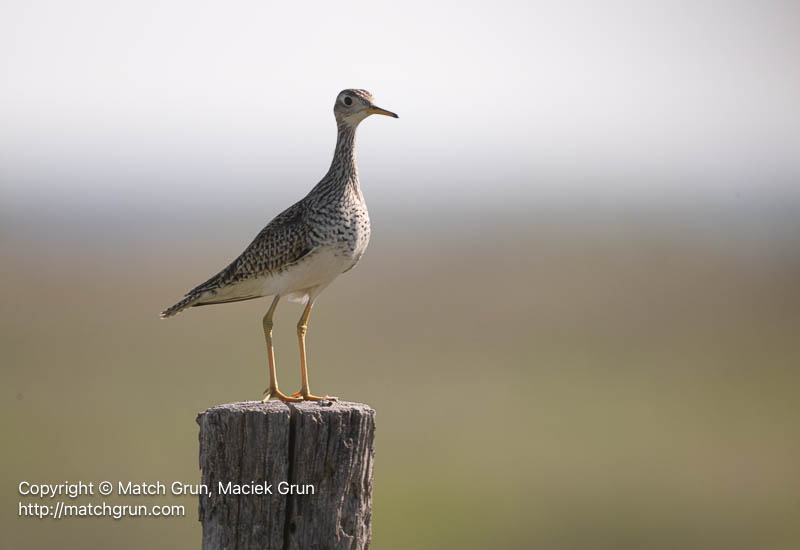
Soon after, we started to head back home, making frequent stops for breaks and lunch along the way. This was a most enjoyable birding tour, also seeing some new species of bird life.
